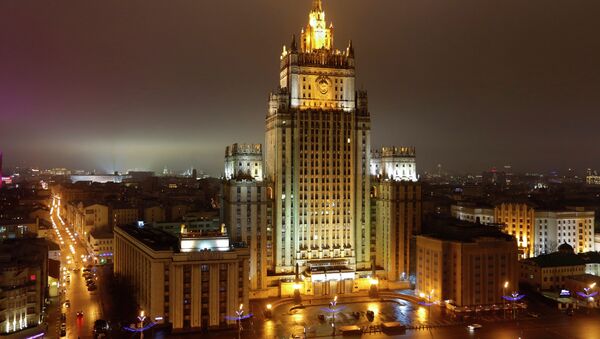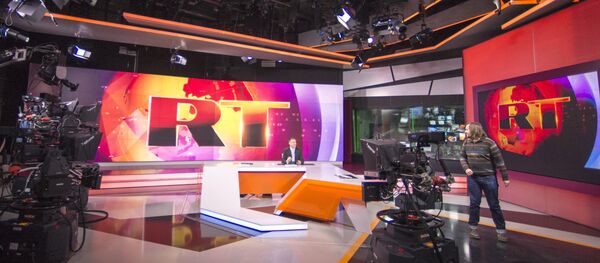"It was difficult not to notice such a coordinated volley of propaganda cliches against Sputnik on the part of several leading UK media," she said at a weekly briefing.
Zakharova specified that several UK media outlets published allegations about misinformation purportedly disseminated by Sputnik.
"[They] branded Sputnik with with all possible colorful epithets like 'the Kremlin's Soviet-style misinformation machine'," she said.
Citing NATO, the media mentioned 124 episodes of Sputnik publishing allegedly "distorted reality" news items, Zakharova said.
NATO spokesperson Oana Lungescu said that the alliance felt that outlets like Sputnik were part of a Kremlin "propaganda machine" which were trying to use information for political and military needs.
Over the weekend, leading UK media ran similar, scathing attacks on Sputnik, citing a NATO claim that the news agency was part of a "Kremlin misinformation machine."
"It was another blow against Russian media in Britain. That country ceases to be media-friendly. Foreign media face all the more problems working in Britain, it is obvious," she added. It is also obvious that the UK applies an ideological approach to media, Zakharova said.
Zakharova mentioned that such trends as "Russian hackers", and now "fake news" from Russia are on purpose launched to be followed by mainstream media.
However, the fight against "fake news" is characterized by a double standard approach. Citing an instance, Zakharova said that Moscow addressed the BuzzFeed after it had published a report alleging US President Donald Trump's ties with Russia, and the report went global, but the media outlet did not issue any denial.
Sputnik UK editor Nikolai Gorshkov repudiated the NATO spokeswoman's claims cited by British media, noting that they bordered on the "conspiratorial."
Russian-based media outlets broadcasting in Europe and the United States have recently faced accusations on allegedly spreading fake news.
On Monday, Kremlin spokesman Dmitry Peskov commenting on French presidential candidate Emmanuel Macron's ally Richard Ferrand claims that Sputnik and RT "spread fake news", which are later "used, quoted and influence our democratic life," said that the accusations were "absurd."




